#gabriel josipovici
Text
If art is a commodity, an aesthetic product designed to add piquancy to the lives of those who can afford it, then it is not surprising that Kafka and Proust and Beckett all deny that they are artists. Neither purveyors of entertainment nor priests of any sacred cult, they see their writing as the only way to satisfy a desperate need, the need to speak meaningfully of what is meaningful.
From The Book of God by Gabriel Josipovici
1 note
·
View note
Text
How did Moses know he was a Hebrew?: Reading Bible stories from within by Jonathan Magonet, Gabriel Josipovici, John Barton
How did Moses know he was a Hebrew?: Reading Bible stories from within by Jonathan Magonet, Gabriel Josipovici, John Barton
Too often Bible stories are familiar to us in the simplified version we learnt as children, or through the lessons they are supposed to teach us in religious homilies. Yet the actual stories are the products of a highly developed literary culture, narrated in an articulate and expressive Hebrew language, and nested within collections of diverse writings with which they are in constant dialogue.…

View On WordPress
0 notes
Photo
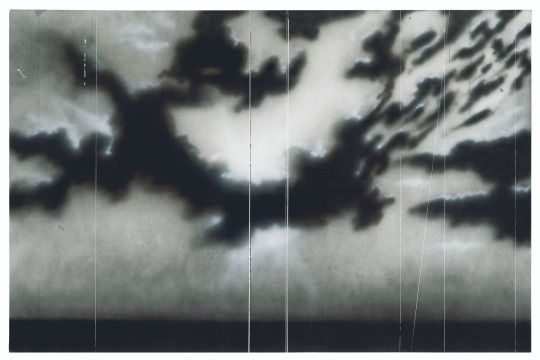

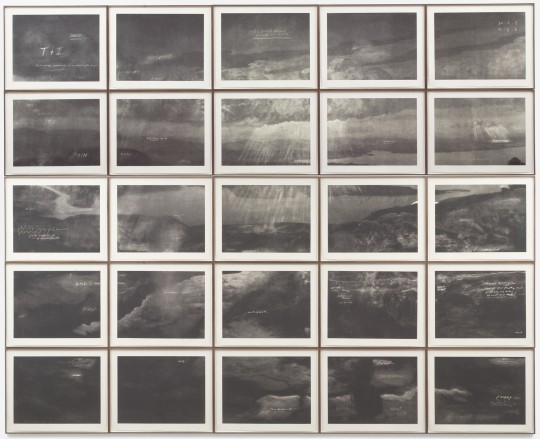



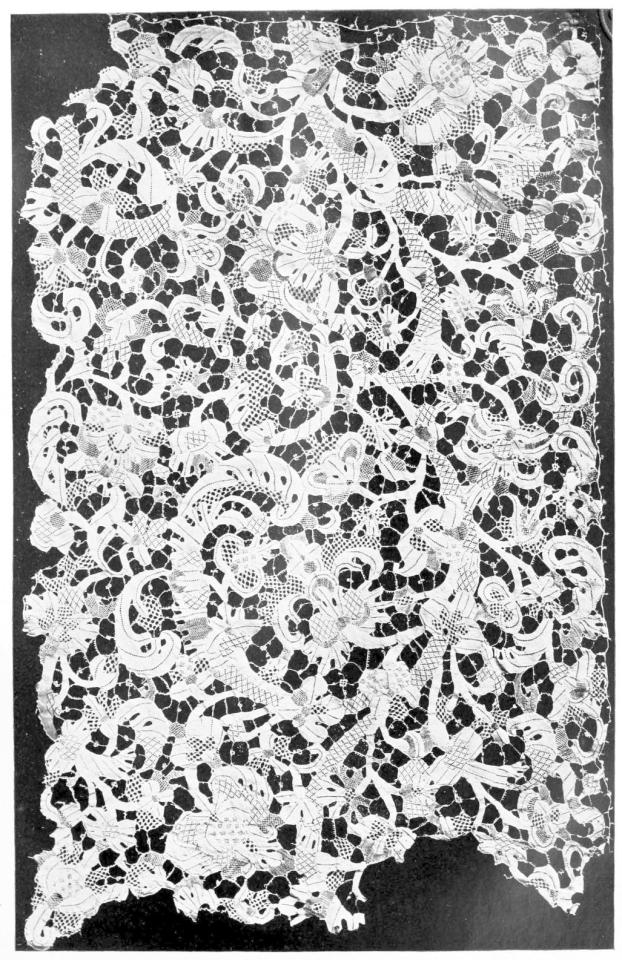



Ed Ruscha, The Land Beyond (1991)
Bat For Lashes, Marilyn
Tacita Dean, T&I (2006)
Andy Warhol, Silver Liz as Cleopatra (1963)
Gabriel Josipovici, Contre-Jour: A triptych after Pierre Bonnard
Eva Hesse, Sans II (1968)
Italian Needlepoint: Point Plat de Venise (17th Century)
Roland Barthes, The Face of Garbo (1957)
Greta Garbo in Mata Hari (dir. George Fitzmaurice, 1931)
Ed Ruscha, The End (1991)
#time art and cinema#another bump of good energy or good luck or whatever but so close so close#anyway#art#painting#drawing#printing#writing#film#tacita dean#bat for lashes#andy warhol#roland barthes#eva hesse#sculpture#textile art#greta garbo#george fitzmaurice#gabriel josipovici#ed ruscha#collage
170 notes
·
View notes
Photo
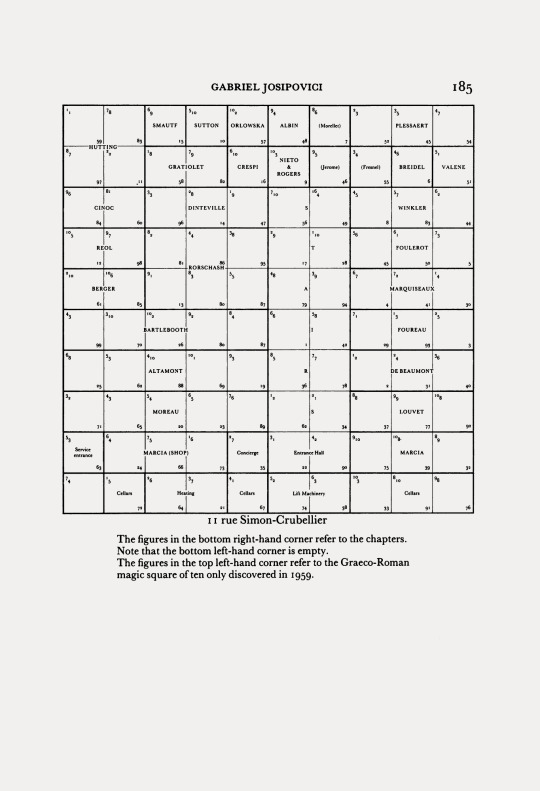
«The figures in the bottom right-hand corner refer to the chapters. Note that the bottom left-hand corner is empty. The figures in the top left-hand corner refer to the Graeco-Roman magic square often only discovered in 1959.», in Gabriel Josipovici, Georges Perec's Homage to Joyce (And Tradition), «The Yearbook of English Studies», Vol. 15, Anglo-French Literary Relations Special Number (1985), (pp. 179-200), Modern Humanities Research Association, p. 185
#graphic design#grid#pattern#structure#la vie mode d'emploi#journal#georges perec#oulipo#james joyce#gabriel josipovici#the yearbook of english studies#modern humanities research association#1980s
35 notes
·
View notes
Text
I loved my solitude and my routine (G. Josipovici)
I loved my solitude and my routine, he would say. I loved waking up in the morning and peering out of the skylight to catch my first glimpse of the dome of the Panthéon in the greyness of a Parisian winter or the bright sunshine of a Parisian spring. I loved putting on my hat and starting down the stairs of the house and then down the steps outside. I loved buying the same things in the same shops and eating the same food in the same bars and bistros, day after day. I loved coming back to my room in the evening and listening to my records. And I loved running my bath last thing at night, then getting in and letting the stains of the day flow slowly out of me into the warm water. Of course, he would say, there are times, with such an existence, when for no reason that you can understand, everything turns black. There are times when the order you have so carefully established seems suddenly unable to protect you from the darkness.
(The cemetery in Barnes)
4 notes
·
View notes
Quote
Reading Barnes, like reading so many other English writers of his generation – Martin Amis, McEwan – leaves me feeling that I and the world have been made smaller and meaner. The irony which at first made one smile, the precision of language which was at first so satisfying, the cynicism which at first was used only to puncture pretension, in the end come to seem like a terrible constriction, a fear of opening oneself up to the world. I wonder, though, where it came from, this petty-bourgeois uptightness, this terror of not being in control, this schoolboy desire to boast and to shock... One finishes them and feels, 'So what?' – so very different from the gut-wrenching experience of reading Herman Melville's Bartleby or William Golding's The Inheritors.
Gabriel Josipovici
1 note
·
View note
Text
Bonnard at Tate Modern
Gabriel Josipovici has written a beautiful review of the Pierre Bonnard exhibition at Tate Modern in the TLS. Josipovici says Bonnard’s true subject is epiphanies:
The painting, I think, says two contradictory and yet complementary things. It says: this is life, this is what my life is with this woman who is my life’s companion, it is looking in at windows or peeling vegetables or washing; it is kittens playing and sunlight entering the room. In the end there is only this, a long series of such moments which one day will end. There is no transcendence, no point we can reach, even momentarily, when we can look down on our lives and understand. This, the picture says, is all life is. But at the same time it says: what a miracle it is, to be alive, to be here, now.

1 note
·
View note
Text
Para escribir una obra maestra
Aspiraciones clásicas pero un temperamento romántico. Novelas para descubrir puede parecer impensado en estos tiempos; sin embargo, hay casos como la historia de Jack Toledano, el protagonista de Moo Pak, del escritor inglés Gabriel Josipovici, que están en búsqueda de lectores.
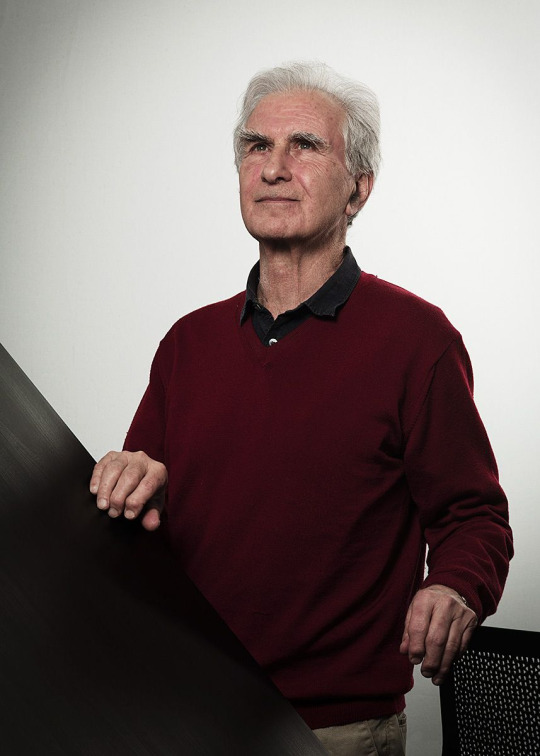
El crítico literario Quitín nos explica este descubrimiento y nos brinda las luces necesarias para salir corriendo a una librería o pedirlo por Internet. “La novela es al mismo tiempo una autobiografía, una teoría sobre el arte y el trabajo del escritor, una reflexión sobre el judaísmo, la inmigración y la vida contemporánea”, escribe en Perfil.
“Josipovici puede construir un canon literario en cuya cúspide hay un póker de autores (Dante, Proust, Kafka y Wallace Stevens, los mejores defensores contra el cinismo posmoderno) o contar el mejor chiste sobre chimpancés pero, en cada página, aparece una idea brillante e inesperada”, agrega.
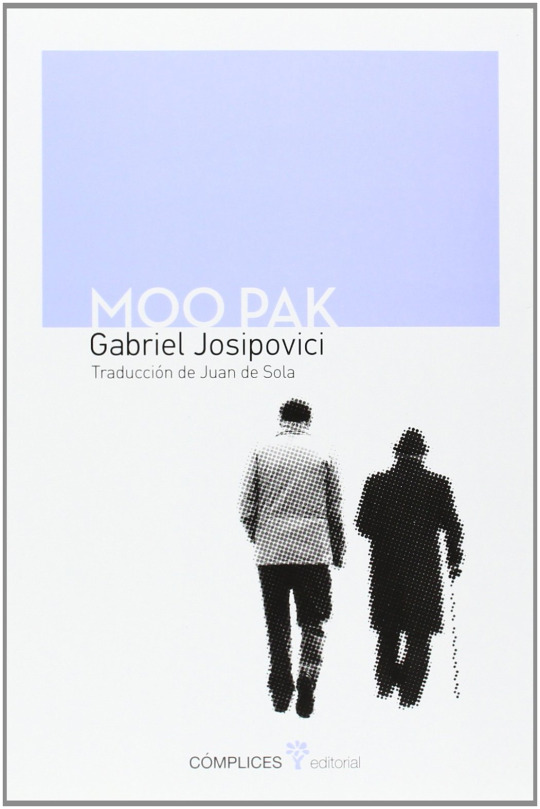
Lee la nota completa aquí.
3 notes
·
View notes
Text
Winding Up the Week #81
Winding Up the Week #81
An end of week recap

Many thanks to all those who wished me a ‘happy birthday’ on 6th August. I shared a photograph of some of the gorgeous books given to me on the day in my post, Birthday Book Bonanza – which, as you can see, comprised yet more Jansson and Atwood titles to add to my already overburdened shelves.
As ever, this is a weekly post in which I summarize books read, reviewed and…
View On WordPress
#Alice Stone Blackwell#Booker Prize#Books#Gabriel Josipovici#Indrani Ganguly#Kate Atkinson#Kate Saunders#Liz Calder#Peter Florence#Reading#Sofka Zinovieff
0 notes
Text
[...] what lives in us and makes us live is less a history or set of memories than a certain rhythm, which, in the end may be simply the rhythm of our own breathing. Curiously, we can only apprehend that rhythm through another.
—Gabriel Josipovici, Text and Voice
3 notes
·
View notes
Note
What are your favorite essays/collections of literary criticism?
Some favorite single essays:
Percy Bysshe Shelley, "A Defence of Poetry"
Ralph Waldo Emerson, "The Poet"
Herman Melville, "Hawthorne and His Mosses"
Matthew Arnold, "The Function of Criticism at the Present Time"
Henry James, "The Art of Fiction"
Sigmund Freud, "The Uncanny"
Walter Benjamin, "Franz Kafka: On the Tenth Anniversary of His Death"
T. S. Eliot, "Tradition and the Individual Talent"
Viktor Shklovsky, "Art as Technique"
Mikhail Bakhtin, "Epic and Novel"
Jun'ichirō Tanizaki, "In Praise of Shadows"
G. Wilson Knight, "The Embassy of Death: An Essay on Hamlet"
Simone Weil, "The Iliad, or, The Poem of Force"
Jorge Luis Borges, "Kafka and His Precursors"
Ralph Ellison, "The World and the Jug"
James Baldwin, "Everybody's Protest Novel"
Leslie Fiedler, "The Middle Against Both Ends"
Iris Murdoch, "The Sublime and the Beautiful Revisited"
Flannery O'Connor, "Some Aspects of the Grotesque in Southern Fiction"
Gilles Deleuze, "On the Superiority of Anglo-American Literature"
George Steiner, "A Reading Against Shakespeare"
Derek Walcott, "The Antilles: Fragments of Epic Memory"
Toni Morrison, "Unspeakable Things Unspoken: The Afro-American Presence in American Literature"
Louise Glück, "Education of a Poet"
Camille Paglia, "Junk Bonds and Corporate Raiders: Academe in the Hour of the Wolf"
Michael W. Clune, "Bernhard's Way"
Some favorite collections:
Samuel Johnson, Selected Essays
Oscar Wilde, Intentions
Virginia Woolf, The Common Reader
D. H. Lawrence, Studies in Classic American Literature
George Orwell, All Art Is Propaganda
Susan Sontag, Against Interpretation
Kenneth Rexroth, Classics Revisited
Guy Davenport, The Geography of the Imagination
Cynthia Ozick, Art and Ardor
V. S. Pritchett, Complete Collected Essays
Gore Vidal, United States
Joyce Carol Oates, The Faith of a Writer
Tom Paulin, Minotaur
J. M. Coetzee, Stranger Shores
Michael Wood, Children of Silence
James Wood, The Broken Estate
Edward Said, Reflections on Exile
Gabriel Josipovici, The Singer on the Shore
Clive James, Cultural Amnesia
William Giraldi, American Audacity
38 notes
·
View notes
Text
Historia y cultura del esoterismo: entrevista a Luca Siniscalco
Por Emilio Bangalterra
Traducción de Juan Gabriel Caro Rivera
Conseguimos una entrevista con Luca Siniscalco, profesor de Filosofía Contemporánea e Historia y Cultura del Esoterismo en Unitre Milán, editor de ensayos de Aleksandr Dugin, Ernest Niekisch y Julius Evola, así como colaborador de varias revistas y editoriales.
Lecciones
A través de los canales informáticos estás impartiendo lecciones de "Historia y cultura del esoterismo", curso universitario que impartes desde octubre en la Universidad de Unitre de Milán. ¿Cuánta participación e interés ha encontrado, tanto en el aula como en casa, por una disciplina que muchas veces ha sido desacreditada en el ámbito académico, también por cuestiones difíciles?
El interés y la curiosidad estuvieron, lo digo sinceramente, muy por encima de mis expectativas. La inclusión de un curso tan excéntrico, para usar una expresión querida por Geminello Alvi, en una institución no especializada en disciplinas de este tipo, podría parecer una apuesta. Pero la valentía -que demostró, en este caso, el rector de Unitre, Silvio Bolognini, interesado en los temas que se le proponen y ferviente partidario de la interdisciplinariedad- siempre da sus frutos. El curso, que se encuentra en su primer año (2019/2020) - y que seguramente se volverá a proponer en el próximo año académico, dentro del Departamento de Ciencias Tradicionales de Unitre de Milán - contó con la asidua participación de una veintena de estudiantes suscriptores. Luego del bloqueo generado por la pandemia del Covid, fue necesario identificar herramientas alternativas para concluir el camino educativo que me había marcado: entonces pensamos en una extensión de los cursos en línea, a través de lecciones en video en Youtube, también con el fin de ampliar la audiencia del público.
A pesar de los contenidos inevitablemente de nicho, las ocho lecciones que he propuesto hasta ahora han llegado a un público más que satisfactorio, en términos cualitativos -dadas las diversas dinámicas generadas, incluida esta entrevista en sí -y numéricamente- obteniendo de cada video un número de visualizaciones que van desde de cien a setecientos. Un pequeño éxito para una iniciativa que pretende dar algunos pasos para promover la investigación sobre el universo esotérico con herramientas académicas. Hasta ahora, numerosos estudiosos e investigadores se han dedicado al esoterismo en Italia - incluso en contextos universitarios - pero siempre partiendo de distintos perfiles disciplinarios (la filosofía de la religión, la historia del arte, la literatura, etc.), pasando a destacar las múltiples y fascinantes mezclas entre los métodos mencionados y el conocimiento esotérico. En "Historia y cultura del esoterismo", en cambio, nos adentramos en medio de las cosas del tema, abordando algunos de los temas centrales dentro de las principales tradiciones esotéricas occidentales: la relación con lo sagrado, la metafísica tradicional, la iniciación, el vínculo entre el misticismo, el ascetismo y la deificación (theosis), la relación entre Oriente y Occidente a nivel mítico-simbólico, y muchos otros temas relacionados.
En su opinión, ¿el conocimiento del esoterismo puede representar una herramienta útil para el estudiante, más allá de la práctica esotérica, al abordar el estudio de las diversas humanidades?
Ciertamente, y no solo en lashumanidades. Incluso la ciencia moderna sería impensable sin la contribución epistémica y cognitiva que ofrece el conocimiento esotérico. Entre la alquimia y la física atómica, para citar un paralelo que surge de la brillante imaginación creativa de Jacques Bergier, hay mucha más afinidad de lo que normalmente se cree.
Esta es precisamente la intención cultural y didáctica que me estimuló al "construir" el curso: mostrar la relevancia, para la comprensión holística de lo humano, de los lenguajes simbólicos, analógicos, iniciáticos y metafísicos. A título personal, solo puedo decir que estoy fascinado por la naturaleza viva y transformadora del esoterismo.
Estoy de acuerdo con lo declarado por N.G. Dávila, el “Nietzsche de Bogotá”: «No basta con escribir una verdad o pensar en ella; cualquier verdad que no sea de carne y hueso, ¿en qué se diferencia de un error?" (Notas). Por otro lado, el curso no pretende en absoluto abordar cuestiones "operativas" - sobre las que, sin embargo, no tendría autoridad para enseñar nada -, sino más bien investigar el contexto histórico y cultural en el que, por un lado, han tomado algunas intuiciones esotéricas ciertos movimientos y, por otro, que estos dominios han contribuido a crear, dar forma y determinar. En la docencia, por tanto, se siguió una intersección sincrética a nivel metodológico de lo que en mi opinión son las trayectorias más fructíferas en el tratamiento de los contenidos del curso: la historia de las ideas, según la lección de Arthur Lovejoy (a la que nos referimos en la gran cadena del ser, su obra maestra de 1936); la filosofía hermenéutica (a partir de Martin Heidegger y, sobre todo, Hans Georg Gadamer, autor de Verdad y método); la hermenéutica o fenomenología religiosa inaugurada por Mircea Eliade; el método tradicional acuñado por Walter Heinrich.
El esoterismo y "la derecha"
¿Está de acuerdo en reconocer la causa de la hostilidad al esoterismo en el ámbito académico, como sucedió con la geopolítica en el pasado, a partir de la yuxtaposición de un mismo pensamiento esotérico a autores considerados "de derecha"?
Ciertamente es un prejuicio generalizado. Impulsado por eruditos que son válidos, pero ideológicamente miopes, piense en Furio Jesi, así como, más a menudo desafortunadamente, por los ciegos solitarios de la corriente dominante radical chic. La cuestión, con sus innumerables implicaciones filosóficas, históricas, psicológicas e incluso sociológicas, sólo puede mencionarse aquí, en virtud de su complejidad.
Más allá de la hostilidad preconcebida por motivos políticos -que en nuestro país desde hace décadas se ha reproducido en los sistemas educativos de todos los niveles a través de las estrategias políticas de tipo gramsciano adoptadas con claridad estratégica por la intelectualidad marxista-, hoy, en la época del ocaso de las grandes narrativas, en una fase de despolitización radical, la ideología de la "planetarización" (Heidegger) se expresa en niveles aún más sutiles y omnipresentes: no es (sólo) tanto una ideología política la que se rechaza, sino toda orientación cultural no reduccionista (en un sentido racionalista, filosófico-analítico o neurocientífico) - es decir, cualquier perspectiva que no se rinda a la idea de un "hombre unidimensional" (Marcuse), reivindicando más bien el carácter múltiple y complejo de la realidad, la pluralidad de los estados de existencia, la importancia de las cualia y no solo de los cuantos, la extra-ordinariaidad sustancial de los lenguajes simbólicos y arquetípicos.
El esoterismo, en este sentido, es un enfoque radicalmente anti-moderno: no por su correlación política (absolutamente necesaria y unívoca, como lo demuestra la heterogeneidad de las posiciones que emergen en los autores de formación esotérica) sino por su incompatibilidad con el carácter monótono del actual “reino de la cantidad” (René Guénon). En sentido constructivo, sin embargo, podemos afirmar que el estudio del esoterismo contribuye a enriquecer nuestra percepción de la realidad: enseña que la letra esconde siempre una pluralidad de interpretaciones, que lo vivo no puede reducirse a un puro objeto material, que, alquímicamente, para hacer el rubledo es indispensable el nigredo, que, finalmente, “el viento sopla por donde quiere, y escuchas su ruido, pero no sabes de dónde viene ni hacia dónde va; así es con todo aquel que es nacido del Espíritu”(Jn 3, 8).
El esoterismo: los pensadores
¿Quiénes son los pensadores en los que se basa más para el desarrollo del programa del curso?
Mi pasión por el mundo de la sabiduría esotérica comenzó con el encuentro con el tradicionalismo integral y, en particular, con la obra de Julius Evola. En el programa de este año, sin embargo, intenté, de acuerdo con una modalidad rizomática y no exhaustiva, sugerir a los estudiantes diferentes estímulos, heterogéneos entre sí, con la esperanza de que posteriormente pudieran favorecer el estudio individual, basado en la "ecuación personal" de cada uno. En concreto, después de haber tratado los orígenes del esoterismo occidental, me concentré en algunos de sus núcleos fundamentales - hermetismo, gnosticismo, alquimia, misticismo cristiano - hasta el umbral de la modernidad.
En esta segunda fase tematicé los temas fundamentales del perennialismo, haciendo referencia sobre todo a René Guénon y Julius Evola, a quienes están dedicados la mayoría de los videos disponibles en Youtube. Luego presenté brevemente la obra del esoterista francés Jean Josipovici (autor de La ciencia oscurantista) y finalmente, con mi colega y amigo Roberto Cecchetti, traté las raíces esotéricas de la obra del psicoanalista Carl Gustav Jung. Numerosas ideas, en su mayoría presentadas de manera incompleta y solo introductoria, que espero, sin embargo, hayan contribuido a dibujar un mapa ideal para embarcarse de manera independiente en un viaje al mundo del esoterismo occidental.
Autores como Giorgio Galli, que en sus obras generalmente hacen una mezcla de política y esoterismo, han sido clarividentes al trazar la interdisciplinariedad de este campo del conocimiento. ¿Es posible imaginar en el futuro cursos de estudio totalmente dedicados al esoterismo?
Ya me he expresado sobre la fundamental relevancia interdisciplinaria del esoterismo. Sin duda, Giorgio Galli ha realizado un trabajo encomiable para promover la comprensión, en nuestro país, de la conexión fundamental entre el dominio de lo político y el conocimiento esotérico, un vínculo que involucra, entre los numerosos temas, cuestiones relativas a los arcana imperii, el inconsciente colectivo, a la naturaleza misma del poder (la creencia de que "hay un secreto escondido en otra cara de la realidad, para lo cual éste no es políticamente manejable solo por medios racionales" [G. Galli, Esoterismo y política], cubre significativamente ambos horizontes, lo político y lo esotérico).
Cursos como los mencionados, en cambio, ya existen en Europa y Estados Unidos: el Departamento de Humanidades de la Universidad de Amsterdam (UvA), por ejemplo, ofrece un Máster en "Esoterismo Occidental". Para el florecimiento de tales caminos académicos, la figura del Prof. Antoine Faivre (1934), quien estableció en el ahora lejano 1979, en la École pratique des haute études de París, la cátedra de "Historia de las corrientes esotéricas y místicos de la Europa moderna y contemporánea". Hoy también la ESSWE (Sociedad Europea para el Estudio del Esoterismo Occidental) trabaja con gran acriba en la dirección de una profundización de los estudios esotéricos en el contexto universitario.
Una misión que, en Italia, todavía no tiene estatuto académico, aunque es perseguida con valentía por investigadores individuales merecedores, también gracias a proyectos editoriales válidos y generosas iniciativas de diversas asociaciones, fundaciones y revistas. Por otro lado, próximamente saldrán a la luz diversos proyectos educativos y editoriales, concebidos en una red académica interdisciplinar centrada en algunas realidades institucionales de vanguardia --entre ellas el CRIFU (Centro de Investigación y Formación Unitre) -, que intercepta algunos de los temas evocados en el curso de la entrevista. Espero poder informar pronto a la redacción de «Oltre la linea» y a sus lectores.
Fuente: https://oltrelalinea.news/2020/06/07/storia-e-cultura-dellesoterismo-intervista-a-luca-siniscalco/
3 notes
·
View notes
Text
they’ve tried to tell me how much grieving there’ll be to do. the poetry, the books, the people all say it: change, suffering death are part of life. i nodded my head and tried to keep it in mind.
i’ve fallen in love with the way seasons turn into each other, the way faces open up when they are happy and the days get longer, then shorter, every year. it’s magical that we’re able to talk to each other across time, leave notes to reassure each other that this thing called life is hard and full of disappointment yes - but sometimes bright and kind too.
letting the world touch you like that will bruise you though, there’s no way around it. you give your heart away to the greenness of the trees in spring, it’ll hurt a little when autumn lets it get swept away.
it’s amazing to be able to learn about the world. it also teaches me that suffering really is the universal experience, and now I’m starting to see kindness as a miracle. to have been hurt to your core and choosing not to respond by spreading more pain, but being kind instead? it feels sacred.
I’m grieving so many things lately. I thought you could only grieve for people. but I’m grieving for the things my younger self deserved but never got. I’m grieving for my idea of family, for the inevitability of time and change, for the knowledge that suffering can’t be avoided, but that I - we - just have to keep making choices, and hoping, and risking our hearts anyway.
the notes that have been left for me tell me that I should “trust the world to bring about renewal.”* and the notes I’ve left for myself tell me about hope and change and hope again. and while the world certainly seems fully of darkness right now, it’s also throwing grace and holiness into sharp relief.
right now I’m bruised and grieving with a waterlogged heart and I can’t take any more of either change or hope.
*Gabriel Josipovici, Moo Pak
#on grief#i don't know what this is#spilled ink#it started as a poem#and then it meandered#i'm not a christian just fyi#i'm more of an animist i guess?#tho i think grace is kind of a christian construct?#i dunno#it speaks to me
3 notes
·
View notes
Text
Reading de Nacht Reading 2019
my favourite books of the year
my overall favourite book of the year:
martin hägglund "this life why mortality makes us free" (2019)
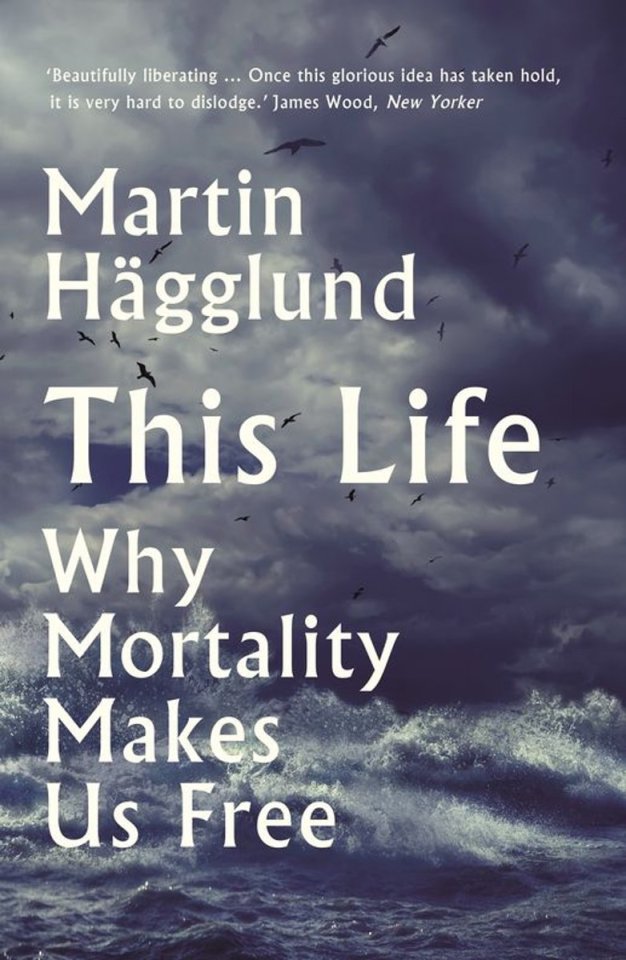
postcyberpunkstompf:
01 ken liu (ed) "broken stars: contemporary chinese sf in translation" (2019)
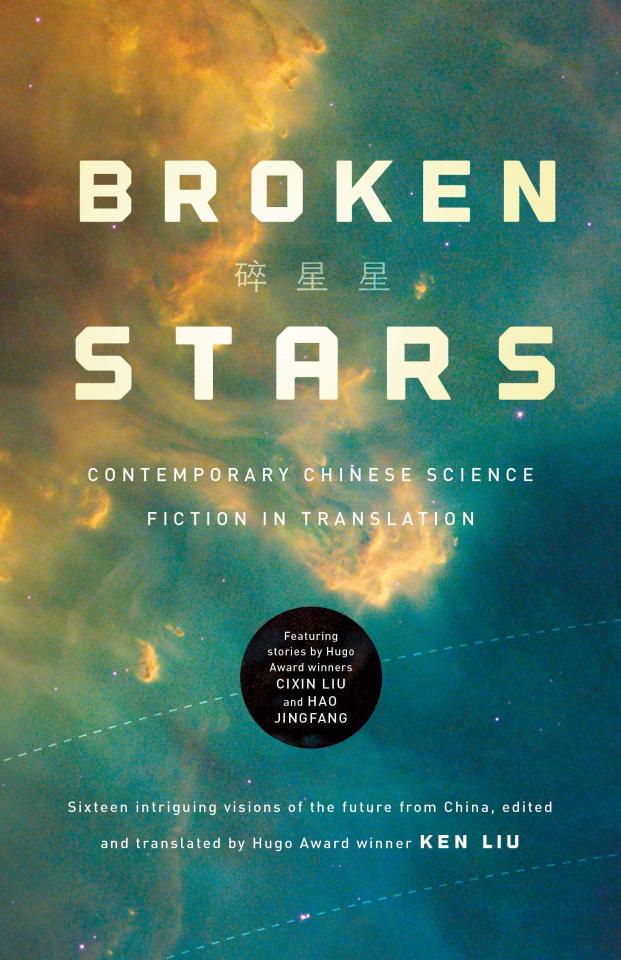
02 cory doctorow "radicalized" (2019)
03 dave hutchinson "the return of the incredible exploding man" (2019)
+ dave hutchinson "nomads" (2019)
+ dave hutchinson "thumbprints" (1978)
+ dave hutchinson "torn air" (1980)
+ dave hutchinson "the push" (2009)
+ dave hutchinson "the villages" (2002)
... damn that elusive "paradise equation" (1981) ...
04 tade thompson "rosewater" (2016)
+ tade thompson "rosewater insurrection" (2019)
+ tade thompson "rosewater redemption" (2019)
05 desirina boskovich (ed) "lost transmissions: the secret history of sf & f" (2019)
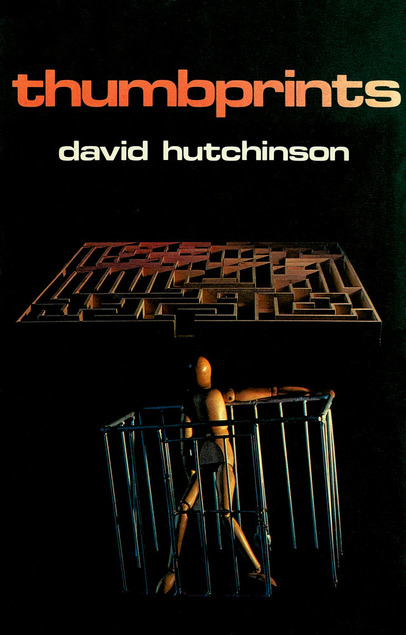
06 hannu rajaniemi & jacob weisman (eds) "the new voices of science fiction" (2019)
07 gardner dozois (ed) "the very best of the best: 35 years of the year's best science fiction" (2019)
08 jonathan strahan (ed) "the best science fiction & fantasy of the year, volume thirteen" (2019)
09 robert markeley "kim stanley robinson modern masters of sf" (2019)
10 allan kaster (ed) "the year's top hard sf stories 3" (2019)
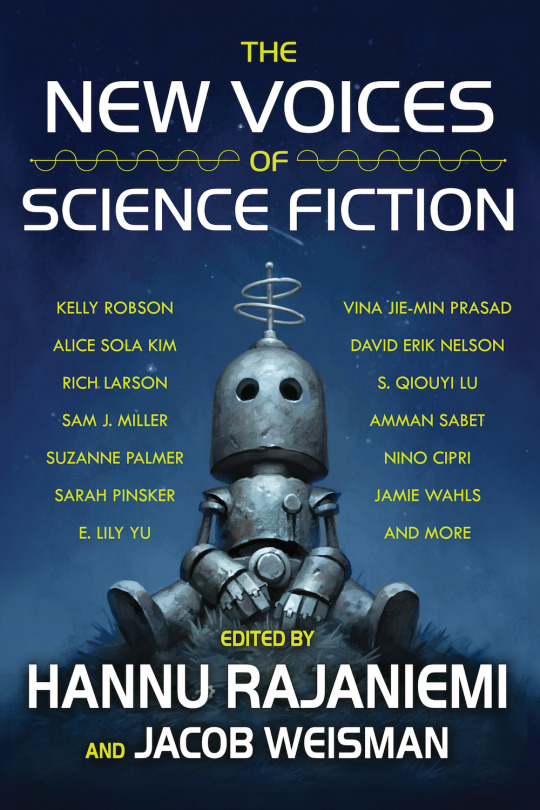
11 olivier girard (ed) "bifrost 96 la revue des mondes imaginaires: william gibson" (2019)
12 mario guglielminetti "web is over. parabola ed esplosione di ubuweb, l'antiprofilo" (2019)
13 bryan thomas schmidt (ed) "infinite stars: dark frontiers" (2019)
14 baoshu "the redemption of time" [2011] (2019)
15 cixin liu "the supernova era" [2003] (2019)

16 l. x. beckett "gamechanger" (2019)
17 gareth l powell "fleet of knives" (2019)
18 chen qiufan "waste tide" [2013] (2019)
19 derek künsken "the quantum garden" (2019)
20 gregory benford "rewrite: loops in the timescape" (2019)
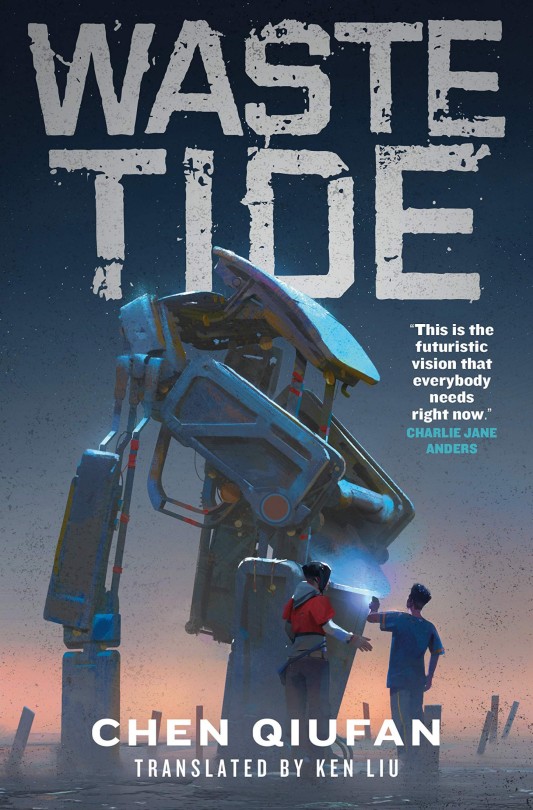
21 james s.a. corey "tiamat's wrath" (2019)
+ james s.a. corey "auberon" (2019)
22 jim al-khalili "sunfall" (2019)
23 peter f hamilton "salvation lost" (2019)
24 neal asher "the warship" (2019)
25 jonathan strahan (ed) "mission critical" (2019)
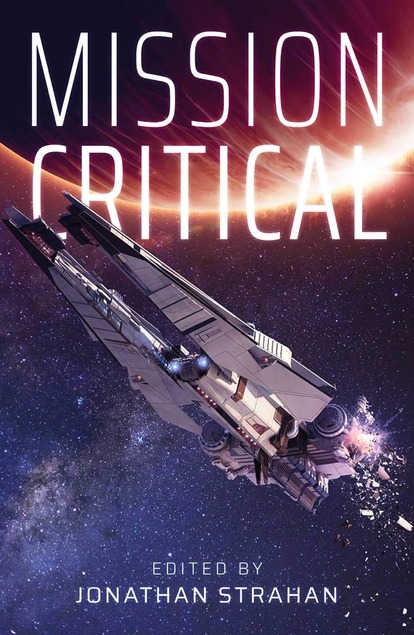
26 jack mcdevitt "octavia gone" (2019)
27 elizabeth bear "ancestral night" (2019)
28 ian mcdonald "moon rising" (2019)
29 carmen maria machado (ed) "the best american sf & f 2019" (2019)
30 valerie valdes "chilling effect" (2019)
31 simon morden "bright morning star" (2019)
+ s. j. morden "no way" (2019)
32 neil stephenson "fall or, dodge in hell" (2019)
33 graham edwards "string city" (2019)
klassikstompf:
01 arno schmidt "bottom's dream" [1970] (2016) ... & still reading ...
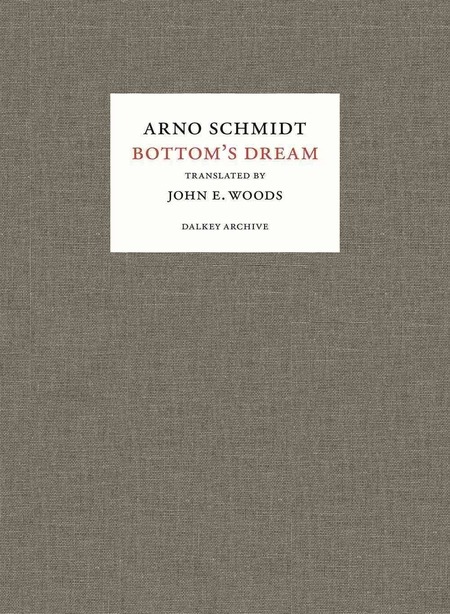
02 jorge luis borgès "borgès restored (the author's preferred translations)" (2016)
03 julie orringer "the flight portfolio" (2019)
+ julie orringer "the invisible bridge" (2010)
04 pola oloixarac "savage theories" (2017)
+ pola oloixarac "dark constellations" (2019)
05 simon critchley "memory theatre" (2014)

06 gabriel josipovici "hotel andromeda" (2014)
07 david keenan "for the good times" (2019)
08 wg sebald "vertigo" [1990] (1999)
+ wg sebald "the emmigrants" [1992] (1996)
+ wg sebald "the rings of saturn" [1995] (1998)
+ wg sebald "austerlitz" (2001)
09 luis chitarroni "the no variations "diary of an unfinished novel" [2007] (2013)
10 julián ríos "larva: a midsummer night's babel" [1983] (1991)

11 césar aira "birthday" [2001] (2019)
+ césar aira "three novels" [1990-2000-1997] (2018)
12 tom mole "the secret life of books" (2019)
13 lucy ives "loudermilk or the real poet or the origin of the world" (2019)
14 lászló krasznahorkai "baron wenckheim's homecoming" [2016] (2019)
15 lucy ellmann "ducks, newburyport" (2019)

16 lars iyer "nietzsche & the burbs" (2019)
17 d harlan wilson "the psychotic dr. schreber" (2019)
18 andrew gallix (ed) "we'll never have paris" (2019)
19 chris kelso (ed) "i transgress" (2019)
20 john crowley "the solitudes" [1987] (2007)
+ john crowley "love & sleep" (1994)
+ john crowley "daemonomania" (2000)
+ john crowley "endless things" (2007) ... (the aegypt cycle)

polarstompf:
01 carlos ruiz zafón "the labyrinth of the spirits" [2017] (2018)
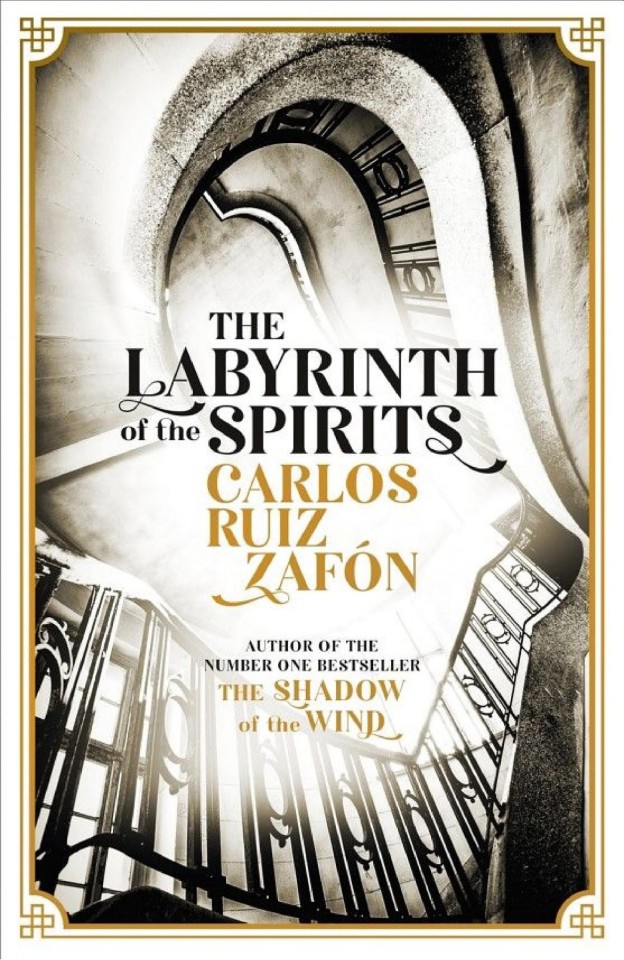
02 volker kutscher "the fatherland files" [2012] (2019)
03 andrea camilleri "the overnight kidnapper" [2015] (2019)
+ andrea camilleri "the other end of the line" [2016] (2019)
04 mick herron "joe country" (2019)
+ mick herron "this is what happened" (2018)
+ mick herron "nobody walks" (2015)
05 john le carré "agent running the field" (2019)

06 guillaume musso "la vie secrète des écrivains" (2019)
07 luke mccallin "the man from berlin" (2013)
+ luke mccallin "the pale house" (2014)
+ luke mccallin "the divided city" (2016)
09 henry porter "brandenburg" [2005] (2019)
+ henry porter "firefly" (2018)
+ henry porter "white hot silence" (2019)
10 mitch silver "the bookworm" (2018)
+ mitch silver "in secret service" (2007)
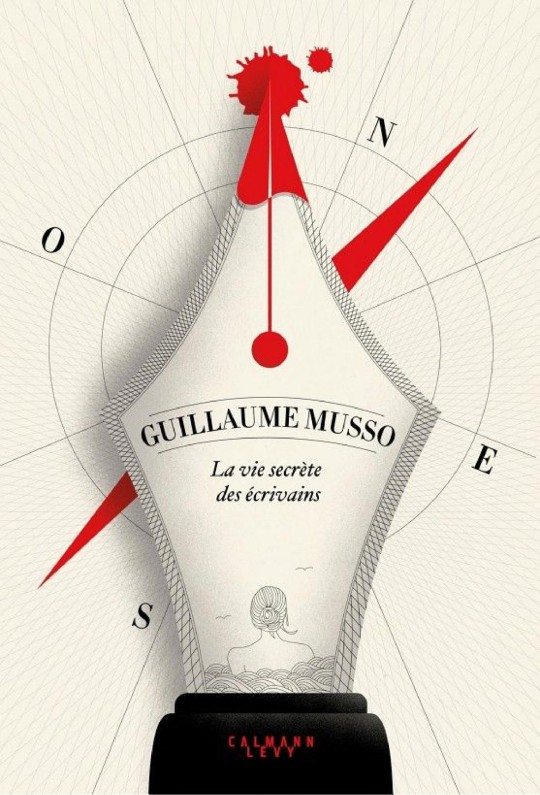
11 alan judd "the accidental agent" (2019)
12 philip kerr "metropolis" (2019)
13 ian rankin "westwind" (2019)
14 jo nesbø "the knife" (2019)
15 david hewson "devil's fjord" (2019)

16 barry forshaw "crime fiction: a reader's guide" (2019)
17 a.a. dhand "one way out" (2019)
18 martin holmén "clinch: the stockholm trilogy 01" (2016)
+ martin holmén "down for te count: the stockholm trilogy 02" (2017)
+ martin holmén "slugger: the stockholm trilogy 03" (2019)
19 michael kestemont "de zwarte koning" (2019)
20 soren sveistrup "the chestnut man" [2018] (2019)
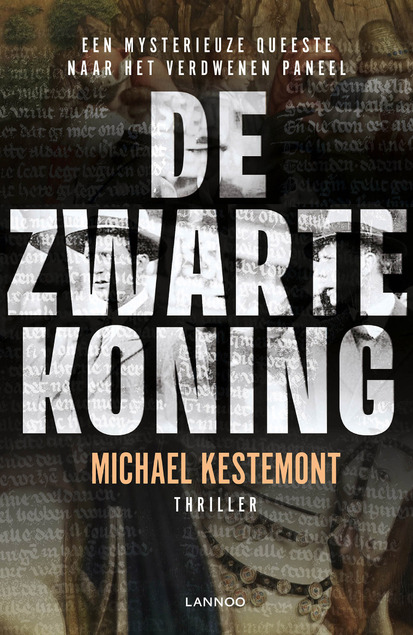
21 tim mason "the darwin affair" (2019)
22 patrick conrad "good night, charlie" (2019)
23 chris pavone "the paris diversion" (2019)
24 dov aflon "a long night in paris" (2019)
25 arne dahl "hunted" [2017] (2019)

RIP ANDREA CAMILLERI !
gedächtnisstompf:
01 martin hägglund "this life: why mortality makes us free" (2019) /
"this life: secular faith & spiritual freedom" (2019)

02 derrida "la vie la mort: séminaire (1975-1976)" (2019)
03 jean-luc nancy "derrida, suppléments” (2019)
04 jean-françois bouthors et jean-luc nancy "démocratie! hic et nunc" (2019)
05 hannah arendt "de vrijheid om vrij te zijn" (2019)
+ hannah arendt "nous autres réfugiés" (2019)
06 mckenzie wark "capital is dead": is this something worse?" (2019)
07 johan schokker & tim schokker
"extimiteit: jacques lacan's terugkeer naar freud" (2000)
08 gerhard richter & ann schmock (eds) "give the word:
responses to werner hamacher's 95 theses on philology" (2019)
09 ranja n gosh "philosophy & poetry: continental perspectives" (2019)
10 shoshana zuboff "the age of surveillance capitalism" (2019)
11 kate zambrano "screen tests: stories & other writing" (2019)
12 daniele carluccio "roland barthes lecteur" (2019)
13 jean-clet martin "la philosophie de gilles deleuze" (2019)
14 mitchell dean & daniel zamora "le dernier homme et la fin de la révolution: foucault après mai 68" (2019)
15 arnon grunberg "vriend & vijand: decadentie, ondergang & verlossing" (2019)
16 kwami anthony appiah
"de leugens die ons verbinden: een nieuwe kijk op identiteit" [2018] (2019)
17 quentin meillassoux "science fiction & extro-science fiction" (2015)
18 roberto calasso "het onbenoembare verleden" [2017] (2019)
19 lydia davis "essays" (2019)
20 denise riley "time lived, without its flow" (2019)
poesisstompf:
zoë skoulding "footnotes to water" (2019)
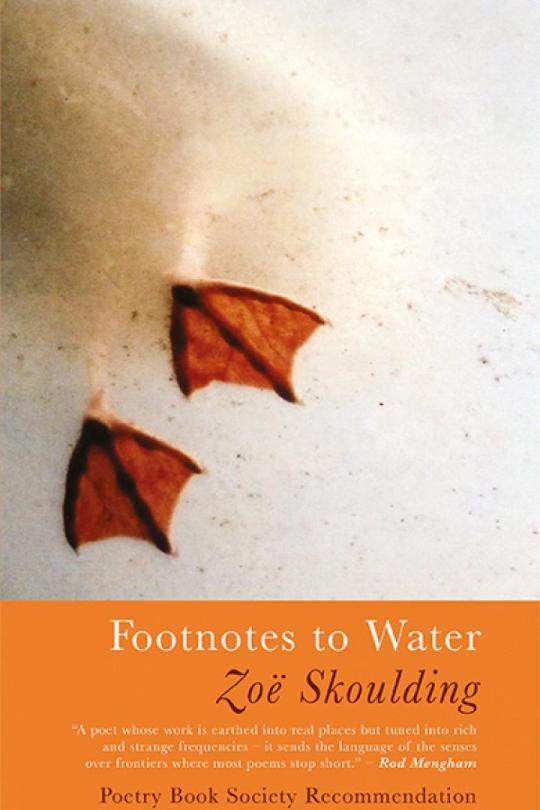
platterstompf:
01 rick moody "on celestial music, and other adventures in listening" (2012)
02 yann courtiau "frictions:
ce que la littérature a fait à la musique et ce que la musique a en a fait" (2019)
03 vivien goldman "revenge of the she-punks:
a feminist music history from poly styrene to pussy riot" (2019)
04 garrígos, triana & guerra "god save the queens: pioneras del punk" (2019)
05 jon savage "this searing light, the sun & everything else:
joy division the oral history" (2019)

06 richard beck "trains, jesus, and murder: the gospel according to johnny cash"
07 mark lanegan "sleevenotes" (2019)
08 jason williamson "jason williamson's house party: sleaford mods 2014-2019" (2019)
09 gallix, hill, & rose (eds) "love bites: fiction inspired by pete shelley" (2019)
10 greg laurie "johnny cash the redemption of an american icon" (2019)

11 marc vos & toon loenders "siglo xx:
opdat de dood ons levend vindt & het leven ons niet doodt" (2019)
12 david sandilands & david keenan "go ahead & drop the bomb
(memorial device pamflet)" (2019)
13 guillaume belhomme "pop fin de siècle" (2019)
14 chris bohn (ed) "the wire" (magazine) (2019)
15 sylvain sylvain "there's no bones in ice cream:
sylvain sylvain's story of the new york dolls" (2018)
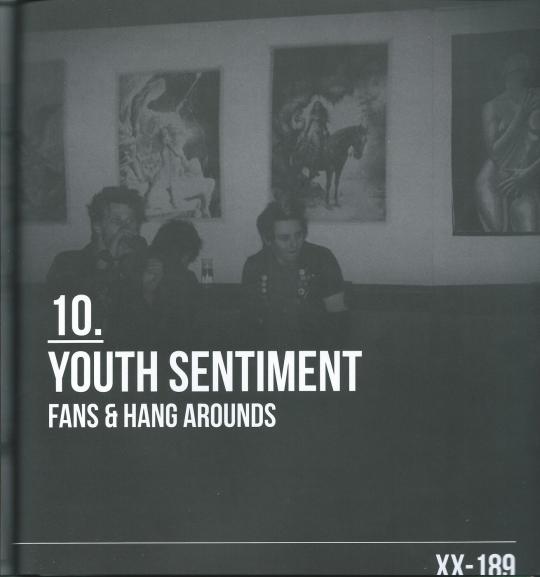
16 debbie harry "face it" (2019)
17 jaime gonzalo "poder freak: una crónica de la contracultura vol III" (2014)
18 matthew bower & samantha davies "talisman angelical" (2017)
19 darryl w bullock "the world's worst records: an arcade of audio atrocity vol I" (2013)
+ darryl w bullock "the world's worst records: another arcade of audio atrocity vol II" (2015)
20 steve zisson (ed) "a punk rock future" (2019) /
ivar muñoz-rojas "underground babilonia" (2019)

bilderstompf:
01 didier ottinger "bacon en toutes lettres" (2019)

02 antoni tàpies "cap braços cames cos" (2012)
+ antoni tàpies "mahlerei und graphik" (2011)
03 laura oldfield ford "savage messiah" (2019)
04 fred vermorel "dead fashion girl: a situationist detective story" (2019)
05 françois schuiten & jaco van dormael "le dernier pharaon" (2019)

06 ken krimstein "the three escapes of hannah arendt: the tyranny of truth" (2018)
07 erik bindervoet & saskia pfaeltzer "aldus sprach nietzsche's zuster" (2019)
08 anthony n fragola & roch c smith
"the erotic dream machine: interviews with alain robbe-grillet on his films" (2006)

cyclostompf:
01 bernard chambaz "petite philosophie du vélo" (2019)
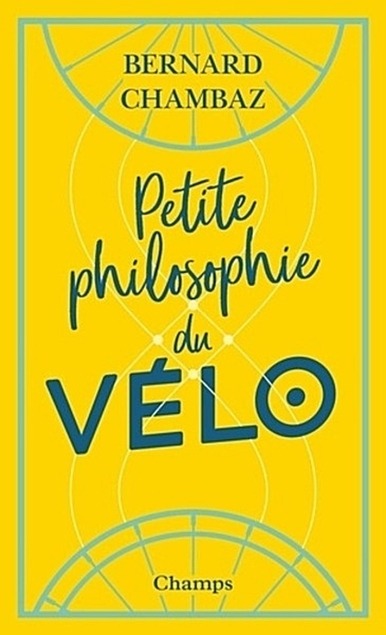
02 filip osselaer "de man die doodging (vervolgens mosselen bestelde,
de rekening vroeg en verdween): el tarangu, josé manuel fuente" (2019)
03 peter schmink "de cultus van het lijden: een vrije oefening" (2006)
04 laurent willame "les lieux sacrés du cyclisme:
15 pélérinages à faire avant de crever" (2019)
05 jonas heyerick (ed) "bahamontes: uit liefde voor de stiel" [magazine] (2019)
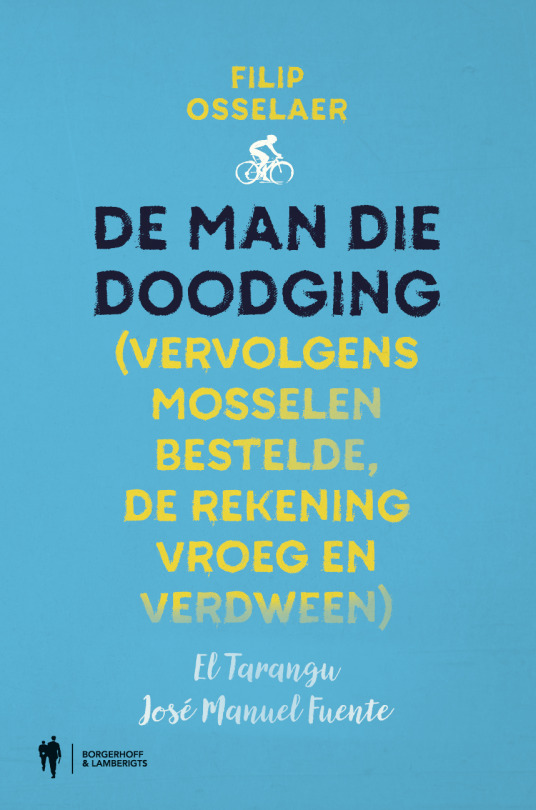
06 johnny vansevenant "1969, het jaar van eddy merckx" (2019)
07 edwin winkels "la vuelta: heroïsche verhalen uit de ronde van spanje" (2019)
08 frederik baeckelandt "fausto coppi (les héros 04)" (2019)
09 harry pearson "the beast, the emperor & the milkman:
a bone-shaking tour through cycling’s flemish heartlands" (2019)
10 peter cossins "the yellow jersey / le maillot jaune" (2019)

11 thijs zonneveld "het panini album" (2019)
12 thijs zonneveld "de fiets, de fiets & nog veel meer sportverhalen" (2019)
13 willy vangenechten "hoe word je een wielerfan (en blijf je er een)?" (2019)
some wissenschaftstompf & autres divertissements ...:
01 robert macfarlane "underland: a deep time journey" (2019)
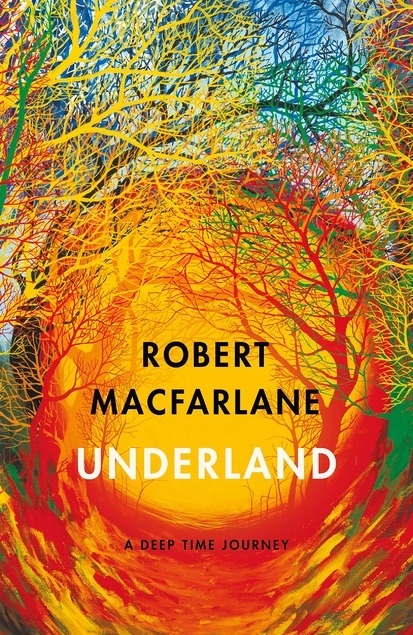
02 george van hal & ans hekkenberg "het kosmisch rariteitenkabinet" (2019)
03 josey waley-cohen "only connect: the difficult second quiz book" (2019)

… tsundoku !
may your home be safe from tigers,
leroy,
x
HNY!
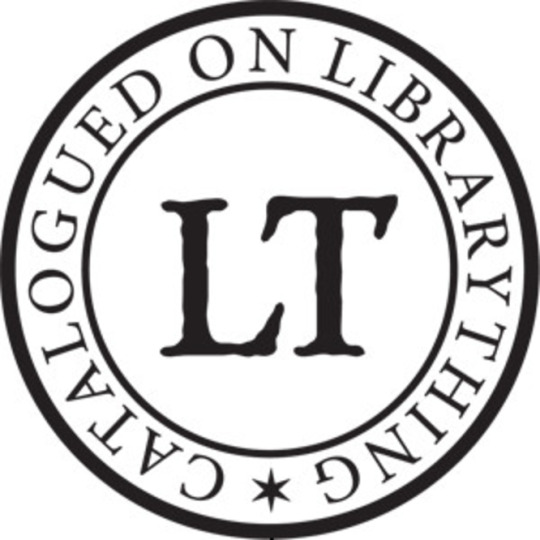
... the annual out of control TBR pile ...

postcyberpunkstompf
ada hoffmann "the outside" (2019)
adrian tchaikovsky "children of ruin" (2019)
alastair reynolds "shadow captain" (2019)
+ alastair reynolds "permafrost" (2019)
annalee newitz "the future of another timeline" (2019)
charlie jane anders "the city in the middle of the night" (2019)
farah mendlesohn "the pleasant profession of robert a heinlein" (2019)gareth l powell "ragged alice" (2019)
greg egan "perihelion summer" (2019)
ian creasey "the shapes of strangers" (2019)
jo walton "lent" (2019)

kameron hurley "the light brigade" (2019)
karl schroeder "stealing words" (2019)
megan o'keefe "velocity weapon" (2019)
neil clarke (ed) "the eagle has landed: 50 years of lunar sf" (2019)
nina allan "the silverwind" (2019)
paul di filippo "aeota" (2019)
peter swirski "stanislaw lem: philosopher of the future" (2019)
+ peter swirski & waclaw m osadnik (eds) "lemography: stanislaw lem in the eyes of the world" (2019)
richard kadrey "the grand dark" (2019)
rudy rucker "million mile road trip" (2019)
simon ings "the smoke" (2019)
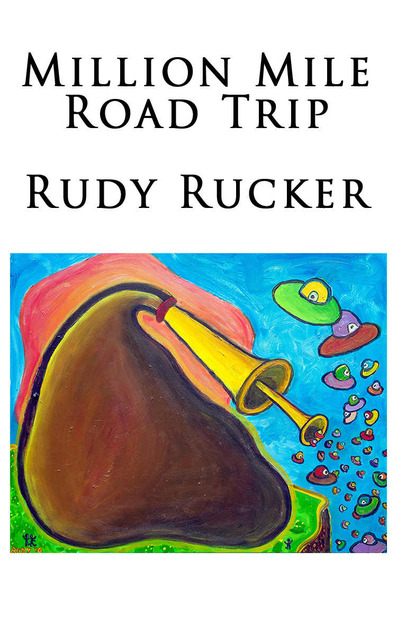
klassikstompf
alex landragin "crossings" (2019)
enrique vila-matas "mac's problem" [2017] (2019)
joseph scapellato "the made-up man" (2019)
kevin breatnach "tunnelvision" (2019)
michel houellebecq "serotonin" (2019)
nell zink "doxology" (2019)
roberto bolaño "the spirit of science fiction: a novel" (2019)
samanta schweblin "mouthful of birds" (2019)
sergio pitol "mephisto's waltz: selected short stories" (2019)
will eaves "murmur" (2019)
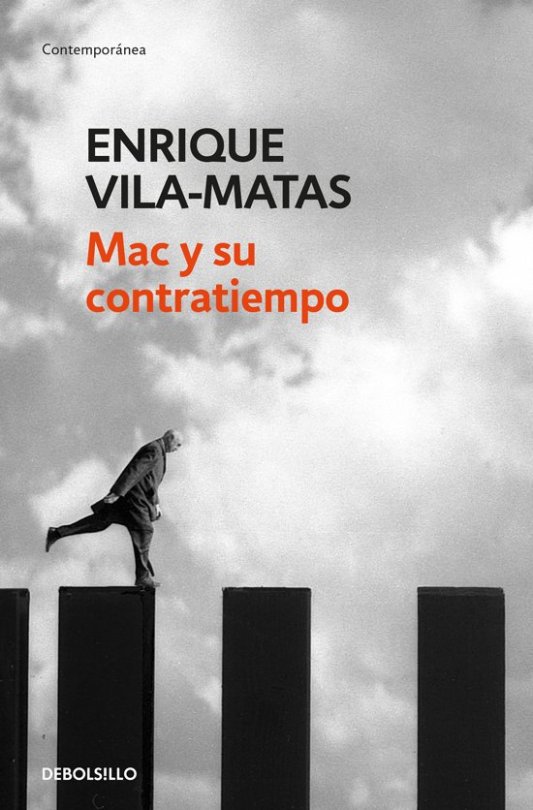
polarstompf
johan op de beek "het complot van laken" (2019)
jon steinhagen "the hanging artist" (2019)
juli zeh "empty hearts" (2019)
max hertzberg "operation oskar" (2019)
+ max hertzberg "berlin centre" (2019)
peter robinson "many rivers to cross" (2019)
tony belloto "bellini & the sphinx" [1995] (2019)
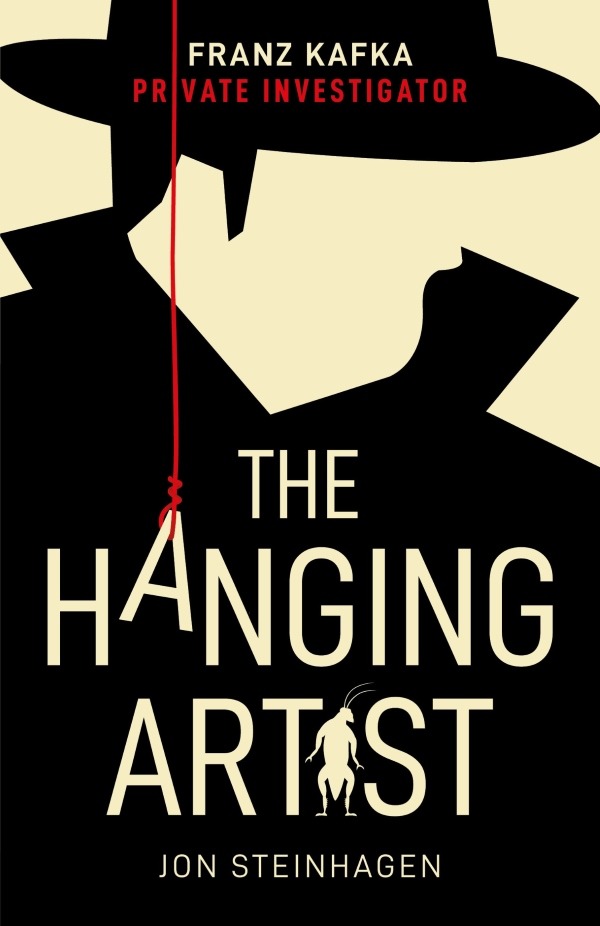
.
.
.

23 notes
·
View notes
Quote
Émerveillement, Massimo, a-t-il dit, sans émerveillement, la vie n'est rien. Sans émerveillement nous sommes des fourmis. Tout ce qui nous entoure est une cause d'émerveillement, Massimo, a-t-il dit. Une femme. Son coude. Son poignet. Un arbre. Ses feuilles. Leur odeur. Un son. Un souvenir. Et la personne qui peut nous aider à nous émerveiller est l'artiste. C'est pour cela que l'artiste est sacré, a-t-il dit. L'artiste est sacré et l'a toujours été.
Gabriel Josipovici, Infini : L'histoire d'un moment
0 notes
Text
For her he was always he and for him she was always she (G. Josipovici)
They never called each other by name. For her he was always he and for him she was always she. Friends of theirs wondered if they used the same formula when they were alone, but no one really knew them well enough to ask.
(The cemetery in Barnes)
2 notes
·
View notes